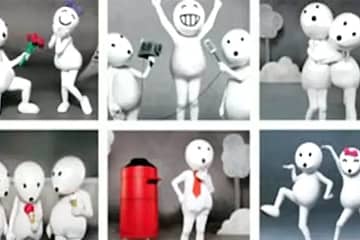Disclaimer: This is purely based on the 2006 movie Pursuit of Happyness and may have no correlation with the real life of Christopher Gardner. This post only focuses on the transformation of Chris from an employee to an employee with an entrepreneurial mindset.
Christopher Gardner’s (hereafter referred to as Chris) life till 1980s was of constant struggle. His navy training, his lack of connections in the medical industry, and his job as a medical equipment salesperson were not taking him anywhere. It wasn’t a bad life, but it wasn’t enough to provide his child with things Chris missed during his own childhood. One thing Chris could provide was his presence and he wanted to make sure that his child would grow up knowing his father.
Chris ensured that he maintained his cheerful, optimistic, easy going persona. He had the
qualities and attitude of a great salesperson. He was extroverted, persistent, and knew to focus on the decision maker. It was just that he didn’t know about product-market fit before he risked his savings to sell a better product that no one wanted. Failure often produces two kinds of people: whiners or winners, and Chris wasn’t the former. He was always curious and ready to learn. When a stockbroker informed him that he only needs to be good at numbers and with people to make it big, Chris knew what he wanted. (happyness)
Chris used his existing skill set to land an interview at Dean Witter Reynolds, a stock brokerage firm (hereafter referred to as Dean Witter). He searched for the decision maker and hand delivered his application instead of applying at the satellite office. He showed a demo of his intellect by solving the Rubix cube, which he learnt out of curiosity. He persuaded the partner at Dean Witter for over a month just by showing up every day in a suit. Even when he was interviewing without a shirt, he remained optimistic, cheerful, and truthful, which is contagious. To him, an unpaid internship was not a step back in his career but a necessary pivot for greater things to come. (happyness)
The unpaid internship with a 5% success rate was challenging for everyone in the program. But Chris had other problems as well. He had two mouths to feed, no source of income, and a broken machine that needed to be sold. He found the core problem, learnt how to solve it, and eventually sold the machine. Even when he was homeless, he would never show his plight to anyone. He would show up in a suit, optimize his work process and continue to build rapport with relevant people at Dean Witter. (happyness)
He always had a knack for doing things differently. Using his experience, he called directly at the top, caught a much needed lucky break but missed the meeting. His persistent attitude and good listening skills took him to the prospect’s home and later to the match where his extrovert nature led to multiple contacts. Eventually, he would be amongst the top performers during the internship because of this rapport building and start his career as a stockbroker. This was not just a job for him, it was an opportunity to reinvent himself for a better life for his son. (happyness)
Note: In case you are looking for a Product Management course, I would highly recommend joining this cohort-based course – ISB Executive Education – Product Management program
PS: You can connect with me for review or referral discount (link for referral discount)


